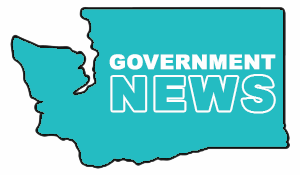
WHAT SHOULD WASHINGTON WORKERS AND EMPLOYERS KNOW THIS WEEK?
WHAT YOU NEED TO KNOW ABOUT...
BUSINESS GUIDANCE UPDATES
Updates and new guidance on indoor fitness, agritourism and museums.
An update to the Phase 2 and Phase 3 Indoor Fitness and Training COVID-19 Reopening Requirements was made on Aug. 26. Updated frequently asked questions concerning this document were also posted.
Agritourism businesses like pumpkin patches and tree farms may operate as early as Phase 2. The new guidance will be updated in the next few days to allow for increased activities, such as hay rides and outdoor corn mazes and haunted houses.
Museums may reopen as early as Phase 2, so long as certain requirements are met and capacity is limited to 25%. In Phase 3, capacity is limited to 50%. Social distancing, sanitation, and methods to prevent congregation and touching are prioritized.
The Washington State Department of Health has announced a standardization of Modified Phase 1 permissible activity.
Modified Phase 1 permissable activity expanded, standardized.
The Washington State Department of Health has announced a standardization of Modified Phase 1 permissible activity.
The following new activities are now permitted in Benton, Franklin and Yakima counties: outdoor group fitness classes with five or fewer people, indoor religious services at 25% capacity or 50 people (whichever is less), social gatherings with five or fewer people outside the household per week, professional services at 25% capacity and more.
For Chelan and Douglas counties, the following new activities are now permitted: limited activities in regulated pools, indoor religious services at 25% capacity or 50 people (whichever is less), curbside library services, drive in movies and more. Chelan and Douglas counties will have their in-store retail occupancy reduced from 50% to 30%, consistent with modified Phase 1 and Phase 2 guidance.
*****
WHAT YOU NEED TO KNOW ABOUT...
UNEMPLOYMENT BENEFITS
Additional $300 weekly unemployment benefit to be paid to eligible claimants.
The state's application for the Lost Wages Assistance program has been approved. Claimants unemployed due to COVID-19 and receiving benefits from July 26 to Aug. 15, 2020 will retroactively receive an additional $300 benefit for those three weeks on top of weekly unemployment benefits. The timeline of these payments has not yet been decided. Refer to the Employment Security Department website for the latest developments.
Employers that paid Q1/Q2 unemployment benefits may apply to have charges offset
Employers affected by COVID-19 may be eligible to apply for an offset of some unemployment benefit charges, which might reduce their 2021 tax rate. This relief applies to unemployment benefits paid in the first two quarters of 2020 to employees who were temporarily laid off as a direct or indirect consequence of COVID-19 and returned to work for the employer after the layoff. Visit the Employment Security Department website for more information.
*****
WHAT YOU NEED TO KNOW ABOUT...
SCHOOLING AND CHILD CARE
Child care providers are open and continue to operate.
Child care has remained open and may continue to operate. Department of Health guidance for child care settings remains in effect. The document urges reduced interactions outside of the household and staying home when possible. Parents will play an important role in keeping child care centers providers safe by watching for symptoms from their children and limiting their exposure to non-household members. Please refer to the Department of Children, Youth & Families for more information about child care as the state responds to the COVID-19 outbreak.
Preschool operated in schools and K-12 education status will be decided locally.
The status of K-12 schooling (and preschool programs operated from K-12 buildings) will be determined locally. Refer to your student's school district communications for the latest developments. All schools must comply with DOH health and safety requirements outlined in the 2020 District Planning Guide published by the Office of the Superintendent of Public Instruction, which describes universal safety guidance to be practiced in schools this academic year.
*****
WHAT YOU NEED TO KNOW ABOUT...
WORKPLACE SAFETY
L&I web tool clarifies "Which Mask for Which Task"
Proper respiratory protection is an essential safety practice and legal requirement in Washington. The Department of Labor & Industries (L&I) now offers an easy-to-use web tool to select proper protection based on the user's responses to a risk assessment.
Heat stress program required of employers of workers exposed to high temperatures.
Washington law requires employers of workers exposed to high temperatures to develop a written program to address potential exposure to heat. High temperatures are defined as in excess of 89 degrees in standard clothing.
*****
WHAT YOU NEED TO KNOW ABOUT...
RENT ASSISTANCE
Eviction Rent Assistance Program available to many Washington counties.
Commerce's Eviction Rent Assistance program, funded with federal CARES Act dollars, may prevent evictions by paying past due and current/future rent for people in distress. Rental assistance will be provided through local housing providers in each community, not directly from Commerce. The following counties have partners established to distribute funds and application periods currently open: Chelan/Douglas, Clallam, Clark, King, Pacific, Stevens/Ferry/Lincoln, Kitsap, Kittitas, Thurston and Whatcom.
Other counties will be announced as application periods open. The program will conclude on Dec. 31, 2020.
*****
WHAT YOU NEED TO KNOW ABOUT...
SMALL BUSINESS RELIEF
Local relief grants and funding available to small businesses across the state.
Many local economic development agencies have received funds from the state to support small businesses. Refer to the Department of Commerce County Business Resources page to search for relief programs available in your county.
Economic Injury Disaster Loan program still available.
Small businesses and agricultural businesses may use low-cost, long-term Economic Injury Disaster Loans to cover a variety of operational expenses. Health care benefits, rent, utilities, and other expenses may be covered under the program. EIDL terms propose a modest 3.75% interest rate for small businesses and a 2.75% rate for nonprofits with a 30-year maturity and automatic one-year deferment period before monthly payments must begin.
